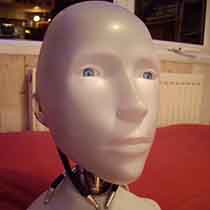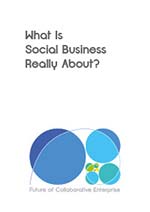 I am a literate internet user. As so, I am pretty connected, and cultivate my networks on a regular basis. This means, I share. I share bits of my life, such as pictures of what I had for dinner yesterday, or clippings of my daily life. I also share what I read, well, in fact I read less and less, so I share first, and will maybe read later. Sharing widgets have made this quite easy, with a single click, I am able to inform my followers about what interests me. Or, at least, about what I stumbled upon. I follow some brands too, just in case they have some kind of discount for me.
I am a literate internet user. As so, I am pretty connected, and cultivate my networks on a regular basis. This means, I share. I share bits of my life, such as pictures of what I had for dinner yesterday, or clippings of my daily life. I also share what I read, well, in fact I read less and less, so I share first, and will maybe read later. Sharing widgets have made this quite easy, with a single click, I am able to inform my followers about what interests me. Or, at least, about what I stumbled upon. I follow some brands too, just in case they have some kind of discount for me.
As told, I cultivate my networks, including the professional one. Regularly, I ask people to join my network on LinkedIn. The more, the better. And linking social accounts allows me to stay active and to share even more easily. Exposure is key here, as it helps growing my credibility.
I share, but am conscious about my privacy. I am using some ad blockers on my computer, and on my iPhone, as I don’t want to be tracked and be overloaded by unwanted advertising. I…
Oh, wait! From all of the above, I, and millions of people acting the same, should just be called perfect idiots.
Advertising and the Fallacy of Privacy
Privacy, of course, is a real concern. Yet, as broken as it is, the advertising model, whether driven by agencies or directly by organizations, is seeing its days counted. For long, big companies have learned how to show and sell us what they want. Lobbying, packaging, selling practices, are some of the elements from the physical world that condition what we buy and consume.
Furthermore, actors from the digital economy are gathering and mining data in ways that allow them to know things about us that we don’t even suspect. Many of the services we use already operate in a post-advertising world, gathering information about our most mundane habits, incrementally building knowledge about our offline behavior. Even worse, the rising Internet of Things raises more challenges than it gives answers. Your refrigerator knows what you eat, but will you really know who is in control of your grocery list?
The Lost Art of Conversation
Maybe more importantly, our over-sharing mania has obfuscated conversations. Dismissing the most elementary netiquette, we are now broadcasting our private life on every social channel, without caring if this is of any interest for someone. The standard connection-making message on LinkedIn is “I would like to add you to MY professional network,” there is no mention of yours. On this Internet of Me, there is no more room for genuine reciprocal interactions. As internet users, we more and more click to share, with an ever-shorter attention span. As customers and consumers, we want everything faster, cheaper. In a quasi-schizophrenic state, we are urging organizations to listen to us, while, as individuals, we are stifling the very conditions in which innovation and fruitful interactions can flourish.
To paraphrase Winston Churchill, there was a time when we shaped the online world. But now, the internet is reshaping the world into an arena of brutal transactions and blind exposure. On enterprise side, the overall inflation of our ego isn’t without consequences. As business owners, we want to sell more, as the lowest possible cost. As shareholders, we want the fastest and highest return on investment. As managers and leaders, we want the most productive teams, the most efficient processes. These behaviors head us to a larger automatization of what we still call “interactions,” but are in fact becoming more and more algorithm-based triggers to action, which in turn lead to fewer jobs and less adaptiveness of business.
There is a thinner and thinner line between “I, Idiot,” and “I, robot.” The growing me-ification of the conversation space, both online and offline, means in fact that we are now relinquishing the responsibility of tackling complexity to machines. “Markets are conversations” was the first these of The Cluetrain Manifesto. Markets are spaces of negotiation, spaces where two-way flows of power and authority take place between involved stakeholders. But when conversations vanish, there is no need for balanced markets anymore. Algorithms will soon be able to decide what we need and want in our place, streamlining transactions along predictive processes. We will end up alone, powerless in the middle of a connected crowd.
A Critical Crossroad
This dystopian near future is not inevitable, but we are heading toward a critical crossroad. Paradoxically, at the same time as we are blindly diving into a downward spiral of high-tech egotism, we are asking organizations to loosen their structure and to listen to us. WE are the customers, but WE are the organizations. It is all of our responsibility to break this vicious circle, and to listen to the voices that plea for more caring relationships. In most cases, organizational blindness is nothing but the reflexion of our own inability to deal with complexity with an open mind. Do not let us subjugate ourselves to the present obsession to “deliver,” whether it be by sharing more, predicting more, or requesting more, but let us reconnect with our human nature, and get meaningful conversations going. The Internet of Me is a lethal decoy, let us build the Internet of Us.
Image By Shao19 (Own work) CC BY-SA 3.0, via Wikimedia Commons.





